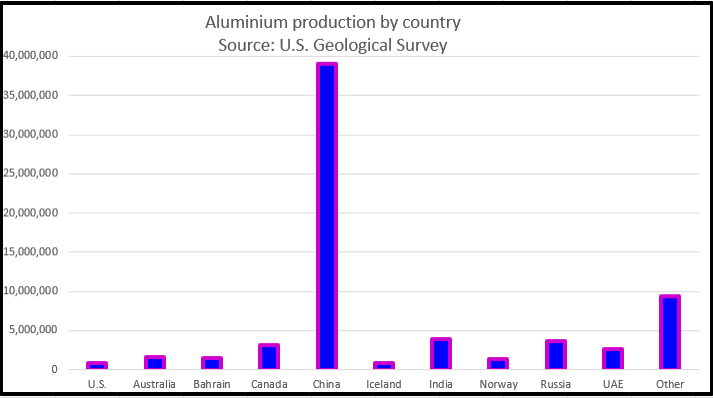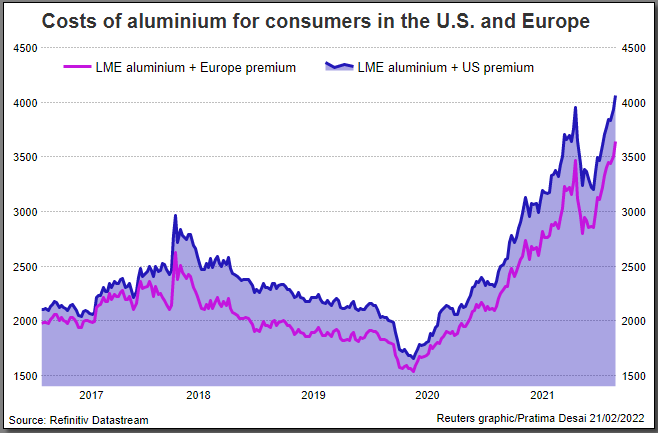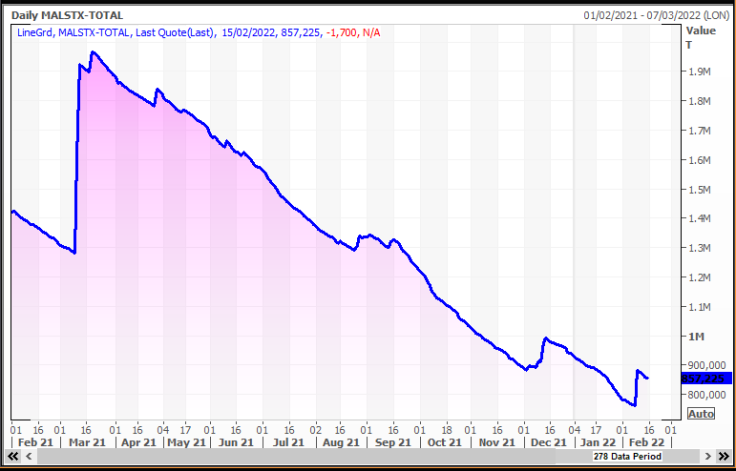Aluminium Shortages To Deter Blanket Sanctions On Rusal - Analysts

The United States and European Union countries are unlikely to impose blanket sanctions on Rusal if Russia invades Ukraine as that would exacerbate aluminium shortages, propel prices to new records and damage manufacturing, analysts say.
Russia has repeatedly denied it is preparing to invade Ukraine.
Rusal, which accounts for about 6% of global aluminium supplies estimated by analysts at around 70 million tonnes this year, is the world's largest producer outside China.
Aluminium production by country -

U.S. sanctions on Rusal imposed in April 2018 - and lifted in early 2019 - created major disruption for firms in the transport, construction and packaging industries. The resulting scramble for aluminium saw prices jump 30% in just a few days.
"It is important to note that lawmakers initially underestimated the impact of the Rusal sanctions," said CRU analyst Eoin Brophy. "Aluminium inventories are so low today that a replay of that error would be explosive for prices."
"To limit disruptions to manufacturing, it is highly likely that any existing contracts would sit outside of sanctions."
In response to requests for comment, EU spokesperson Peter Stano said it was premature to speculate about specific measures, since "no decisions have been made about any new sanctions against Russia".
"Our sanctions will be suggested, discussed and adopted only in reaction to further violation or aggression against Ukraine," he said.
A U.S. Treasury spokesperson declined to comment when asked about Rusal's potential treatment in any sanctions imposed against Russia. The department typically does not discuss details of sanctions before they are imposed.
Costs of aluminium for consumers in the United States and Europe -

The possibility of the market losing Rusal's aluminium pushed prices on the London Metal Exchange (LME) to $3,333 a tonne last week, close to the record high of $3,380.15 a tonne touched in July 2007.
Shortages in Europe and the United States can be seen in the duty-paid physical premiums that consumers pay above the LME price, at record highs above $460 a tonne and $790 a tonne respectively.
"Any moves that have direct implications for industry will be considered very carefully. Aluminium has already priced in an element of disruption," said Macquarie analyst Marcus Garvey, adding that any disruption could not be fully priced in at this stage.
"Our base case is that there will not be disruptions to Russian aluminium supply... the market is extremely tight."
Aluminium market balances -

Macquarie expects the aluminium market to see a deficit of 1.8 million tonnes this year after a shortfall of 1.5 million tonnes in 2021.
Shortages have meant draws on inventories, which in LME-approved warehouses have more than halved to 855,525 tonnes since March last year.
LME aluminium inventories -

© Copyright Thomson Reuters 2024. All rights reserved.





















